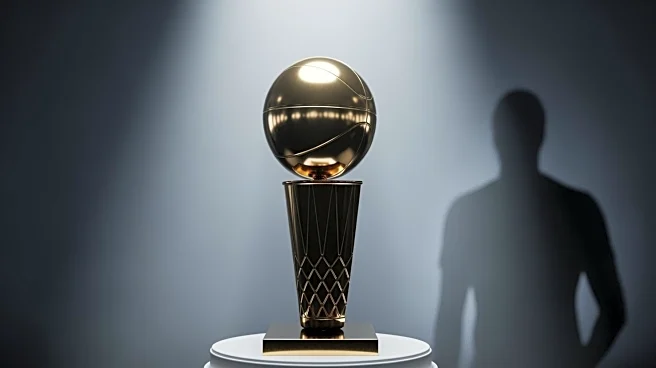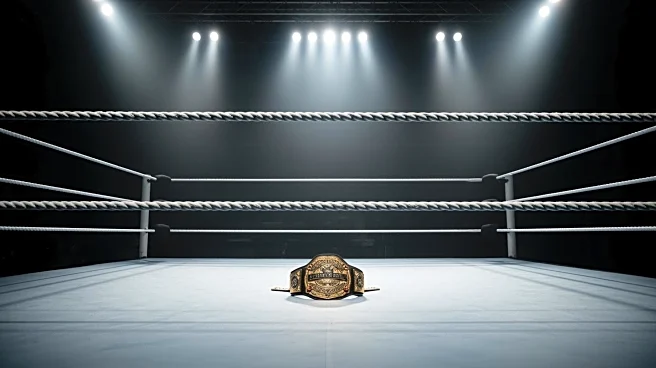What's Happening?
WNBA Commissioner Cathy Engelbert was met with boos and a hostile reception while presenting the WNBA championship trophy to the Las Vegas Aces in Phoenix. The Aces secured their third title in four years
by defeating the Phoenix Mercury. Engelbert's appearance was marred by a crowd member flipping her off, reflecting the growing discontent among players and fans. This reaction follows recent allegations against Engelbert for making dismissive remarks about player concerns, including comments attributed to her about Caitlin Clark's earnings and the media rights deal. Engelbert has denied these allegations, emphasizing Clark's positive impact on the league.
Why It's Important?
The incident highlights tensions within the WNBA regarding player treatment and league management. Engelbert's alleged comments have sparked criticism from players like Napheesa Collier and A'ja Wilson, who have expressed dissatisfaction with the league's leadership. This situation underscores the importance of player relations and the need for effective communication between league officials and athletes. The controversy could impact the league's image and its ability to attract and retain top talent, especially as the collective bargaining agreement is set to expire soon.
What's Next?
With the WNBA's collective bargaining agreement expiring on October 31, the league faces potential negotiations that could address player concerns and reshape its future. The players' union may push for changes in leadership or policies to improve player relations and ensure fair treatment. The outcome of these negotiations could significantly influence the league's direction and its relationship with players, fans, and sponsors.
Beyond the Headlines
The backlash against Engelbert may prompt broader discussions about leadership accountability and transparency in professional sports. It raises questions about how sports organizations can balance business interests with player welfare and public perception. The situation also highlights the evolving role of athletes as advocates for change within their leagues, potentially setting a precedent for other sports organizations.









